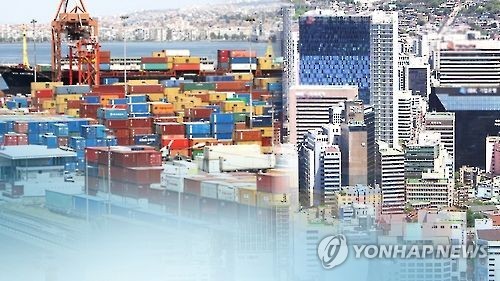Conglomerates in financial trouble are refusing debt workouts, even when facing penalty, partly from passive creditor banks who do not want to provide bailout money, regulators said Monday.
A report submitted to Rep. Park Yong-jin by the Financial Supervisory Service said five conglomerates requested a workout last year when there were 11 firms whose annual credit ratings showed they needed debt rearrangements.
 |
(Yonhap) |
Despite the government's stated drive from early in the year to go after poorly-rated businesses, the number of filed workouts actually fell from 13 in 2015, the report showed.
Corporate workouts had been a widely-used alternative to bankruptcies, allowing companies to negotiate with their creditors and receive fresh bailout funds. After the Wall Street-originated global financial crisis in 2008, the number of workouts reached 48 in 2009 and 37 in 2010.
Thirteen firms were given grade C in their credit ratings last year, but Hyundai Merchant Marine and Hanjin Shipping were already in voluntary workout proceedings.
A new law went into effect last year that penalizes C-rated firms that do not file for workouts within three months, including loans restrictions and forced debt repayment, but the report showed that the companies were opting for penalties instead of seeking workouts.
Bank officials acknowledged that passivity by creditors is mainly responsible for such refusals by companies. "Rather than risk having to take on bad debts by providing a fresh bailout to companies in workouts, more creditor banks are deciding to make an exit after taking what they can from liquidation," an official said.
Creditor banks themselves are in trouble from low interest rates and low profit growth, making their agreement on any workout plan harder, officials said. It also doesn't help that the new law from last year allows overseas financial institutions and all other creditors to take part in the workout talks.
"The merits of workouts as a state-controlled financing have weakened after law changes that gave transparency to the process," Prof. Kim Sang-jo of Hansung University said. For instance, financial authorities and policy banks, the key players in workouts, were tied down when overseeing restructuring of conglomerates like Hanjin Shipping and Daewoo Shipbuilding & Marine Engineering last year, he said. (Yonhap)







![[Today’s K-pop] Blackpink’s Jennie, Lisa invited to Coachella as solo acts](http://res.heraldm.com/phpwas/restmb_idxmake.php?idx=644&simg=/content/image/2024/11/21/20241121050099_0.jpg)
